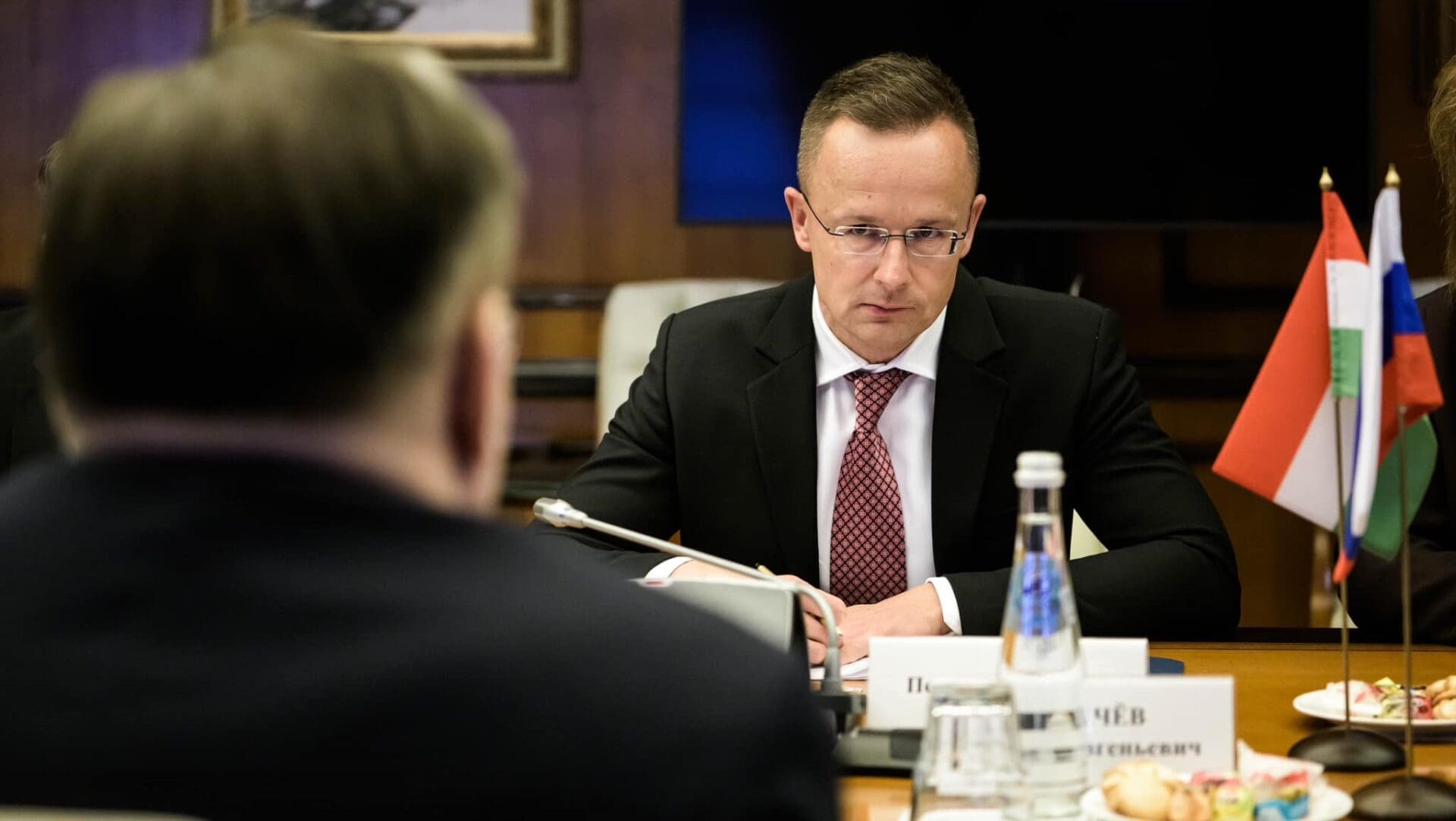Agreements were reached with Russia that ensure uninterrupted and continuous gas and oil supplies to Hungary in the coming period, Minister of Foreign Affairs and Trade Péter Szijjártó announced in Moscow on Tuesday.
According to the ministry’s statement, following his consultations with Deputy Prime Minister Alexander Novak of Russia and Aleksey Likhachov, the head of Rosatom, the minister quipped that although he could provide Hungary with three pieces of good news, he could still confidently predict how his visit will be received by the international liberal mainstream and domestic opposition.
‘However, as long as the issue of energy supply is a material question and not a matter of political or ideological preference or dislike, whether one likes it or not, cooperation with Russia and the Russians will remain crucial for Hungary’s energy security,’ he pointed out.
He also emphasised that right after winter, ‘in Europe, it is fashionable to strut about with great bravado these days,’ but the International Energy Agency recently issued an ‘ominous’ report indicating that the most severe difficulties are expected to come in the next heating season when supply security will be critical. Firstly, there is no guarantee that the next winter will be as mild as the last one, secondly, the energy demand of the Chinese economy is significantly increasing due to the reopening following the coronavirus pandemic, and thirdly, the necessary LNG capacities have not yet been developed on the continent, as he said.
Szijjártó called the uninterrupted delivery of Russian gas an issue of fundamental importance,
and welcomed the extension which allows Hungary to make purchases beyond the quantity specified in the long-term contract if necessary. ‘About 80–85 per cent of Hungary’s gas supply comes directly from Russia, so the continuity and uninterruptedness of the delivery are crucially important for us,’ he declared.
According to the second agreement, Hungary has been granted the option to partially delay payment if a megawatt hour of gas goes above the fixed price of €150. ‘Of course, thank God, today’s energy prices are much lower than that, but the past year has shown that we must prepare for extreme situations,’ he said.
He went on to state that Russia has assured them that all the technology, skilled workforce, and components necessary for the continuous operation of the Turkish Stream pipeline are available to them despite the sanctions, so this year’s maintenance and upkeep work will proceed smoothly. He added that if this gas pipeline had not been built due to the ‘many friendly threats,’ meeting Hungary’s energy needs would be practically impossible today.
Justartsandstuff 🇨🇦🇺🇦🇹🇼 on Twitter: “”Hungarian Foreign Minister Péter Szijjártó visited MoscowThere he agreed to increase gas supplies from Russia and renewed the agreement on financing and construction of the Paks nuclear power plantHe said that access to Russian energy is crucial for Hungary’s security.” pic.twitter.com/4TpF4WN2D6 / Twitter”
“Hungarian Foreign Minister Péter Szijjártó visited MoscowThere he agreed to increase gas supplies from Russia and renewed the agreement on financing and construction of the Paks nuclear power plantHe said that access to Russian energy is crucial for Hungary’s security.” pic.twitter.com/4TpF4WN2D6
The minister emphasised that in 2022, about 80 per cent of Hungary’s oil supply came through the Friendship pipeline. In this regard, an important agreement had been reached with the Russian supplier that the oil would continue to be delivered to Mol at the Ukrainian-Hungarian border.
‘Previously, there were solutions proposed by the Russian side that involved greater risk, which would have made the transportation through Ukraine Hungary’s responsibility, but it’s better to avoid that in the current circumstances,’ he said.
He announced that Mol would directly pay the transit fee to the Ukrainian network operator to maintain continuous transit through Ukraine. ‘If the Russian company continued to pay the transit fee to the Ukrainian company, it could create significant uncertainty,’ he said.
According to Szijjártó, the contracts concerning the Paks investment were signed more than nine years ago, and regardless of the war and sanctions, the state of technology has changed so much that these contractual frameworks need to be modified to carry out this investment. He added that the sanctions have made it even more difficult, so they had to find the legal framework to modify the existing contracts, which would enable the construction of the nuclear power plant. Szijjártó also announced that the parties have reached an agreement on how to modify the implementation and financing contract, and the lawyers are now writing out the final drafts of the contracts. These contract modifications will be immediately submitted to the European Commission in Brussels for approval.
The foreign minister expressed hope that the European Commission does not want to jeopardise the long-term energy security of Hungary
since the construction of the new blocks in Paks can ensure that the country’s energy supply will be safe in the long run, and can be sustained in an affordable way in the coming period.
He went on to say that the completion of the so-called partial wall monitoring tests in Paks brought good news, the results have been submitted to the Hungarian Atomic Energy Authority for review, and also to the management of the Paks power plant for study. A quick evaluation of the test results is expected, then work on the partial walling can start, which is an important step during the preparation of the construction, with the aim of ensuring the safety of both the blocks already in operation, and the ones about to be built.
Related articles:








